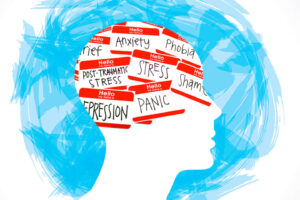Cortisol, known as the “stress hormone,” regulates your body’s metabolism and stress responses. Chronic levels of cortisol can lead to weight gain, anxiety, weakened immunity, and sleep disturbances. Here are reasons why you should consider a cortisol detox.
If you find it hard to get rid of your belly fat, you can blame Cortisol, or the “stress hormone”, which is responsible for our body’s metabolism, immune response, and stress response.
While cortisol is necessary in our body in small amounts, chronic stress can elevate cortisol levels, leading to anxiety, weight gain, high blood pressure, weakened immunity, and difficult sleeping. “Chronic stress, driven by various factors including work, relationships, and lifestyle, triggers the adrenal glands to release cortisol, disrupting metabolic processes and promoting fat storage, particularly around the abdomen.
Here are some foods and lifestyle changes that can help:
- Reduce caffeine intake
Caffeine can stimulate cortisol production, especially when consumed in large amounts or combined with stress. Overconsumption can disrupt sleep and increase anxiety.

How to detox: Limit coffee and energy drinks to the morning, switch to decaf options, and drink green or herbal teas. Stay hydrated to avoid dehydration, which can increase cortisol.
- Get enough sleep
Poor sleep or lack of sleep causes cortisol levels to rise, leading to stress and health issues. Good sleep hygiene helps maintain balanced cortisol.

How to detox: Aim for 7-9 hours of quality sleep each night, maintain a consistent sleep schedule, avoid electronics before bedtime, and make your bedroom comfortable for restful sleep.
- Practice mindful breathing and meditation
Mindfulness and meditation can lower cortisol levels by promoting relaxation and activating the parasympathetic nervous system.

How to detox: Practice deep breathing exercises daily, meditate for 10-15 minutes a day, and use guided meditation apps or calming music to center your mind.
- Exercise regularly, but don’t overdo it
Moderate exercise lowers cortisol by promoting the release of endorphins, but over-exercising can increase cortisol.

How to detox: Engage in moderate activities like walking, swimming, or yoga, and avoid prolonged high-intensity workouts, especially when under stress.
- Eat a balanced, nutrient-dense diet
The right foods can help balance cortisol production.
Foods to include: Leafy greens (rich in magnesium), fatty fish (omega-3s), whole grains, fruits high in vitamin C, and probiotic-rich foods.

Foods to avoid: Sugary snacks, refined carbs, and highly processed foods that can cause cortisol spikes.
- Manage stress with adaptogenic herbs
Adaptogens help your body adapt to stress and regulate cortisol production.
Adaptogens to include: Ashwagandha, Tulsi, and Maca Root.

How to use: Add adaptogen powders, capsules, or teas to your routine after consulting with a healthcare professional.
- Avoid skipping meals
Skipping meals leads to low blood sugar, triggering cortisol production.
How to detox: Eat three balanced meals per day, including lean proteins, healthy fats, and complex carbs, and avoid excessive fasting.
- Socialise and laugh more
Positive social interactions and laughter reduce stress and lower cortisol.
How to detox: Engage in activities that bring joy and laughter with friends and family to produce oxytocin, which counteracts cortisol.
- Limit alcohol and nicotine
Both alcohol and nicotine raise cortisol levels over time.
How to detox: Cut back on alcohol and nicotine and find healthier alternatives to relieve stress, like herbal teas, exercise, or journaling.
- Take breaks and practice self-care
Chronic stress keeps cortisol levels elevated, but self-care can help manage it.
How to detox: Take regular breaks, dedicate time to self-care, and practice relaxation techniques like reading, journaling, or pursuing hobbies.
A cortisol detox focuses on adopting healthy habits to naturally lower cortisol levels and relieve chronic stress. Improving sleep, practicing meditation, eating well, using adaptogens, and prioritizing self-care are effective ways to restore balance and manage stress. By managing cortisol, you can improve both mental and physical health.



